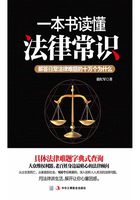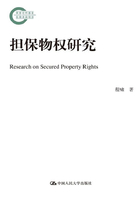the first of them is to be the common prison in the neighbourhood ofthe agora for the safe-keeping of the generality of offenders; anotheris to be in the neighbourhood of the nocturnal council, and is to becalled the "House of Reformation"; another, to be situated in somewild and desolate region in the centre of the country, shall be calledby some name expressive of retribution. Now, men fall into impietyfrom three causes, which have been already mentioned, and from each ofthese causes arise two sorts of impiety, in all six, which are worthdistinguishing, and should not all have the same punishment. For hewho does not believe in Gods, and yet has a righteous nature, hatesthe wicked and dislikes and refuses to do injustice, and avoidsunrighteous men, and loves the righteous. But they who besidesbelieving that the world is devoid of Gods are intemperate, and haveat the same time good memories and quick wits, are worse; althoughboth of them are unbelievers, much less injury is done by the one thanby the other. The one may talk loosely about the Gods and aboutsacrifices and oaths, and perhaps by laughing at other men he may makethem like himself, if he be not punished. But the other who holdsthe same opinions and is called a clever man, is full of stratagem anddeceit-men of this class deal in prophecy and jugglery of all kinds,and out of their ranks sometimes come tyrants and demagogues andgenerals and hierophants of private mysteries and the Sophists, asthey are termed, with their ingenious devices. There are many kinds ofunbelievers, but two only for whom legislation is required; one thehypocritical sort, whose crime is deserving of death many timesover, while the other needs only bonds and admonition. In likemanner also the notion that the Gods take no thought of men producestwo other sorts of crimes, and the notion that they may be propitiatedproduces two more. Assuming these divisions, let those who have beenmade what they are only from want of understanding, and not frommalice or an evil nature, be placed by the judge in the House ofReformation, and ordered to suffer imprisonment during a period of notless than five years. And in the meantime let them have no intercoursewith the other citizens, except with members of the nocturnal council,and with them let them converse with a view to the improvement oftheir soul"s health. And when the time of their imprisonment hasexpired, if any of them be of sound mind let him be restored to sanecompany, but if not, and if he be condemned a second time, let himbe punished with death. As to that class of monstrous natures whonot only believe that there are no Gods, or that they are negligent,or to be propitiated, but in contempt of mankind conjure the soulsof the living and say that they can conjure the dead and promise tocharm the Gods with sacrifices and prayers, and will utterly overthrowindividuals and whole houses and states for the sake of money-lethim who is guilty of any of these things be condemned by the courtto be bound according to law in the prison which is in the centre ofthe land, and let no freeman ever approach him, but let him receivethe rations of food appointed by the guardians of the law from thehands of the public slaves; and when he is dead let him be cast beyondthe borders unburied, and if any freeman assist in burying him, lethim pay the penalty of impiety to any one who is willing to bring asuit against him. But if he leaves behind him children who are fitto be citizens, let the guardians of orphans take care of them, justas they would of any other orphans, from the day on which their fatheris convicted.
In all these cases there should be one law, which will make men ingeneral less liable to transgress in word or deed, and less foolish,because they will not be allowed to practise religious ritescontrary to law. And let this be the simple form of the law:-No manshall have sacred rites in a private house. When he would sacrifice,let him go to the temples and hand over his offerings to the priestsand priestesses, who see to the sanctity of such things, and let himpray himself, and let any one who pleases join with him in prayer. Thereason of this is as follows:-Gods and temples are not easilyinstituted, and to establish them rightly is the work of a mightyintellect. And women especially, and men too, when they are sick or indanger, or in any sort of difficulty, or again on their receivingany good fortune, have a way of consecrating the occasion, vowingsacrifices, and promising shrines to Gods, demigods, and sons of Gods;and when they are awakened by terrible apparitions and dreams orremember visions, they find in altars and temples the remedies ofthem, and will fill every house and village with them, placing them inthe open air, or wherever they may have had such visions; and with aview to all these cases we should obey the law. The law has alsoregard to the impious, and would not have them fancy that by thesecret performance of these actions-by raising temples and by buildingaltars in private houses, they can propitiate the God secretly withsacrifices and prayers, while they are really multiplying their crimesinfinitely, bringing guilt from heaven upon themselves, and alsoupon those who permit them, and who are better men than they are;and the consequence is that the whole state reaps the fruit of theirimpiety, which, in a certain sense, is deserved. Assuredly God willnot blame the legislator, who will enact the following law:-No oneshall possess shrines of the Gods in private houses, and he who isfound to possess them, and perform any sacred rites not publiclyauthorized-supposing the offender to be some man or woman who is notguilty of any other great and impious crime-shall be informedagainst by him who is acquainted with the fact, which shall beannounced by him to the guardians of the law; and let them issueorders that he or she shall carry away their private rites to thepublic temples, and if they do not persuade them, let them inflict apenalty on them until they comply. And if a person be proven guilty ofimpiety, not merely from childish levity, but such as grown-up men maybe guilty of, whether he have sacrificed publicly or privately toany Gods, let him be punished with death, for his sacrifice is impure.
Whether the deed has been done in earnest, or only from childishlevity, let the guardians of the law determine, before they bringthe matter into court and prosecute the offender for impiety.














